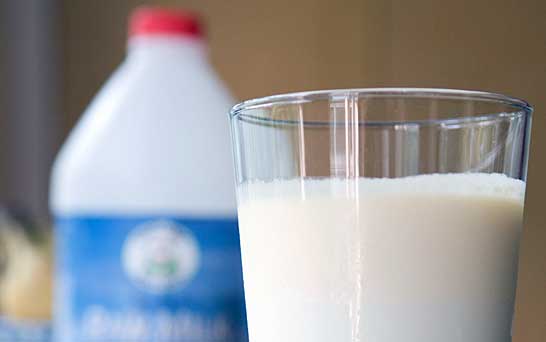Among the endless diet fads and craze to eat healthy and stay thin, our first instinct when dieting is to grab everything off supermarket shelves that is labeled with “low-fat” or — even better — “non-fat.” According to recent studies, however, men who consumed high-fat dairy tended to be leaner than those who consumed low-fat dairy products.
Two independent studies focused on the relationship between high-dairy fat intake and obesity. Both found similar results: high-dairy fat intake was related to a decreased chance of becoming obese.
The first study, “High-dairy fat intake related to less central obesity: A male cohort study with 12 years’ follow-up,” was published in Scandinavian Journal of Primary Health Care last June by researchers from the Research and Development Center in Växjö, Sweden and the Department of Public Health and Caring Sciences, Family Medicine and Clinical Epidemiology Sections at Uppsala University. Researchers used data from 1,589 participants to conclude that an intake of high-fat dairy was linked with less risk of developing obesity, while an intake of low-fat dairy was related to a higher risk of developing obesity.
According to authors Sara Holmberg and Anders Thelin, “15 percent of men developed central obesity during follow-up. A low intake of dairy fat at baseline (no butter and low fat milk and seldom/never whipping cream) was associated with a higher risk of developing central obesity and a high intake of dairy fat (butter as spread and high fat milk and whipping cream) was associated with a lower risk of central obesity as compared with medium intake after adjustment for intake of fruit and vegetables, smoking, alcohol consumption, physical activity, age, education and profession.”
The second study titled “The relationship between high-fat dairy consumption and obesity, cardiovascular, and metabolic disease” was conducted by researchers at the Fred Hutchinson Cancer Research Center in Seattle, Washington and published in European Journal of Nutrition. The study results corroborated the Swedish scientists’ findings that that the intake of high-dairy fat within reasonable dietary patterns is associated with reduced risk of obesity as compared to low-fat products.
“In 11 of 16 studies, high-fat dairy intake was inversely associated with measures of adiposity. Studies examining the relationship between high-fat dairy consumption and metabolic health reported either an inverse or no association,” the study claimed.
Both studies were accomplished with the assumption that dairy intake for both low-fat and high-fat drinkers was healthy and reasonable. Although high-fat milk was shown less likely to contribute to obesity than low-fat dairy, it still remains high in saturated fat and should not be consumed in large portions, which can increase the risk of heart disease.
So next time you are thinking about dropping a pant size or losing a few pounds, the best option may be to reach for full-fat products.

Photo Courtesy of Rebecca Smith
A version of this story appeared on page 11 of Wednesday, February 26, 2014’s print edition of the Daily Nexus.















